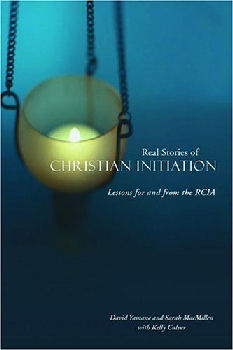
|
Posted April 23, 2006
Book: Real Stories of Christian Initiation: Lessons for and from the RCIA Authors: David Yamane, Sarah MacMillen with Kelly Culver Liturgical Press, Collegeville, MN, 2006, pp. 140 An Excerpt from the Jacket:
In doing so, they offer a detailed analysis of the strengths and weaknesses of the RCIA process in each of the parishes. From these stories collectively they draw lessons for the RCIA as well as lessons from the RCIA in general and in particular parish settings. An Excerpt from the Book: The RCIA is supposed to transform the church, but often it is transformed by the church. In fairness to Father John we must acknowledge that the pastor and the RCIA team alike labor under a common restraint: the limited time and interest of the faithful assembled for worship on Sundays. When Father John says “ther are too many rites at this church,” it seems that this is what he means. But then how much total time over the course of a year does the celebration of each and every rite in the Ordo take? To borrow from Mother Teresa, to say there are too many rites is like saying there are too many flowers. Nevertheless, the Third Commandment (“Remember to keep holy the Sabbath day”) notwithstanding, many Catholics have only sixty minutes to spare for worship on Sundays. But if Sunday is the Sabbath, to where is everyone rushing? Christina Poole – a candidate for full communion at St. Mary’s – suggests that everyone is “trying to beat the rush to Bob Evans. I stay to the end of the Mass, so I have to wait for a table.” As Michael Budde has argued, contemporary religious worship and formation must conform to secular and especially capitalist culture. American culture transforms Christian discipleship, regardless of the type of parish we look at. Protestant theologian David Wells has described religion in contemporary society as “weightless.” Weightlessness, Wells writes, is “the common form in which modernity rearranges all belief in God.” The metaphor suggests that religion does not bear heavily on believers. So, the ritual initiation of adults is all well and good as long as it can be fitted into the one hour Mass box. Table of Contents: 1. St. Mary’s “We’re abut making disciples 2. St. Mark’s: “Faithful to the past” 3. St. Innocent: “Only just the beginning” 4. St John Bosco: Task-completion initiation and “experience” 5. Queen of Peace: “Come and follow me” |
|
